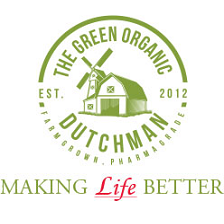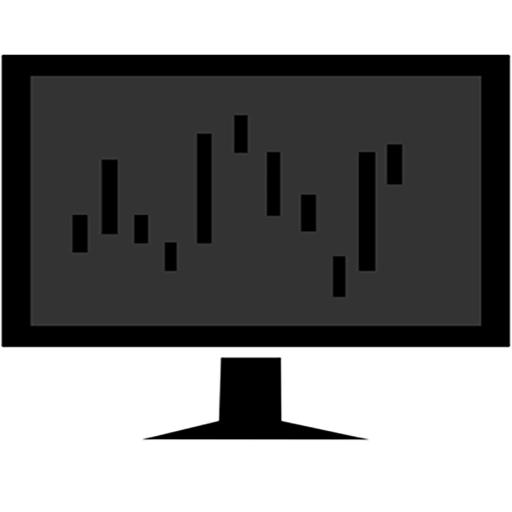The Green Organic Dutchman: Being Realistic on Organics
The Green Organic Dutchman (TSX: TGOD, TGOD.WT) investors have had a rough go as of late. Certainly, similar statements can be made by anyone invested in the cannabis sector over the course of the last week, however the Organic Dutchman has been hit particularly hard. That’s not to say that it wasn’t appropriate.
Although not entirely reflected in the price per share of the equity, the firm has effectively lost a major partner in Aurora Cannabis. Previously a major shareholder with the option to increase it’s holdings to that of a majority, Aurora has since elected to walk away from the Organic Dutchman despite being privy to special pricing. With speculation being rampant in regards to why they chose to let the option lapse, the equity has continued it’s slow decline. To add further salt to the wound, Aurora has since begun selling off it’s current position in the company, collecting tens of millions in the process.
But why has Aurora declined to increase it’s investment in the Organic Dutchman? And how much more can it sell before pre-IPO shares are free trading?
The Green Organic Dutchman’s fundamental issues
At the present point in time, many investors point to one key aspect of the Organic Dutchman for their perceived future success: the rising popularity of organically grown produce. Many have stated this reason alone as the primary reason for their investment in the firm. With few other players focused on this niche in Canada, the theory is that the Green Organic Dutchman will emerge as the dominant player in the space, thereby claiming a large portion of the market share.
However, it seems that few if any have actually conducted research on the perceived size of this market. Due to a lack of research on the topic in general, we’ll have to extrapolate some data from a similar market, the global food and beverage industry. Within the latest edition of the Food and Beverages Global Market Report 2018 it states, “The global food and beverages market was estimated to be over $5650 billion as of 2017. The segments in the food and beverages market include alcoholic – beverages, non alcoholic – beverages, pet food, tobacco, grain products, meat, poultry and seafood, fruit and vegetable canning, pickling, and drying, frozen food, and dairy.”
Comparatively, a recent Zion Market Research report indicated that the global organic food and beverage industry amounted to roughly $124.7 billion in 2017. Both reports list figures in US Dollars. Collectively, what this tells us is that the global organic food and beverage industry is worth approximately 2.20% of the broader market.
To make this data relevant, we now need to examine the estimated cannabis market, both in Canada as well as globally. Within Canada, the most bullish market size estimate that we managed to find after scouring several sources, was that of US$10 billion. This was found via a Motley Fool report published on May 20. More conservative estimates have placed the range between $5 billion and $7 billion, typically in Canadian dollars. We’ll use the largest figure we found so as to give the benefit of the doubt. Applying this same 2.20% ratio for organic market share would place the value of the niche at US$220,000,000 within Canada. At current exchange rates, this equates to roughly C$288.2 million.
For a global perspective, the worldwide cannabis market is estimated to be $146.4 billion by 2025. This figure was stated in a recent Grand View Research market report published in April 2018. Again utilizing the same 2.20% comparable, this would place the global organic cannabis market at US$3.22 billion, or C$4.21 billion.
What does this mean for the Green Organic Dutchman? Simply, it implies that the perceived niche market is largely overstated in the minds of investors. There are currently a number of companies in the space, including The Green Organic Dutchman, Organigram, and Whistler Medical Marijuana Corp, along with what appears to be a long line of applicants waiting to receive their license to cultivate. And that’s only in the Canadian marketplace, globally there are many more producers looking to get a piece of the little organic cannabis pie.
It’s evident that we aren’t alone in performing these market projections – ABcann Global, now known as VIVO Cannabis, modified their business plan several months ago to remove the focus on organic cannabis. Organigram has also recently taken a slight step back from the market, now electing to only produce a portion of its cannabis using organic methods. With such a small percentage of consumers focusing on an organic product, it’s simply not worth the effort of utilizing solely organic focused growing processes. More than anything, it’s evident that consumers will be focused on the quality of the product rather than the manner in which it was grown.
Perhaps this is the reason for the recent parting of ways between The Green Organic Dutchman and Aurora Cannabis. The firm recently sold 6,341,250 shares of its holdings in Organic Dutchman, which is the total shares figure that it purchased in the company’s IPO round. Receiving total proceeds of $35.83 million from the sale, Aurora made a cool $12.69 million on the investment. Aurora still holds 3.2 million share purchase warrants that it received in the IPO round, in addition to 33.3 million shares and 16.6 million share purchase warrants currently subject to lockup provisions. These lockup provisions expire at the start of November, 6 months from the date of the Green Organic Dutchman’s IPO.
Good, bad, or indifferent, it’s clear that the business model of the Green Organic Dutchman may be subject to a rework in the future given estimated market sizes. It wouldn’t be the first to perform this rework, and it likely won’t be the last.
The Green Organic Dutchman closed down $0.53 on Friday, or -9.71%. It currently trades at $4.93, with a market capitalization of $1.30 billion.
Information for this briefing was found via Sedar, SEDI, TMXMoney, Health Canada, Aurora Cannabis, and The Green Organic Dutchman. The author has no securities or affiliations related to this organization. Not a recommendation to buy or sell. Always do additional research and consult a professional before purchasing a security. The author holds no licenses.
As the founder of The Deep Dive, Jay is focused on all aspects of the firm. This includes operations, as well as acting as the primary writer for The Deep Dive’s stock analysis. In addition to The Deep Dive, Jay performs freelance writing for a number of firms and has been published on Stockhouse.com and CannaInvestor Magazine among others.





